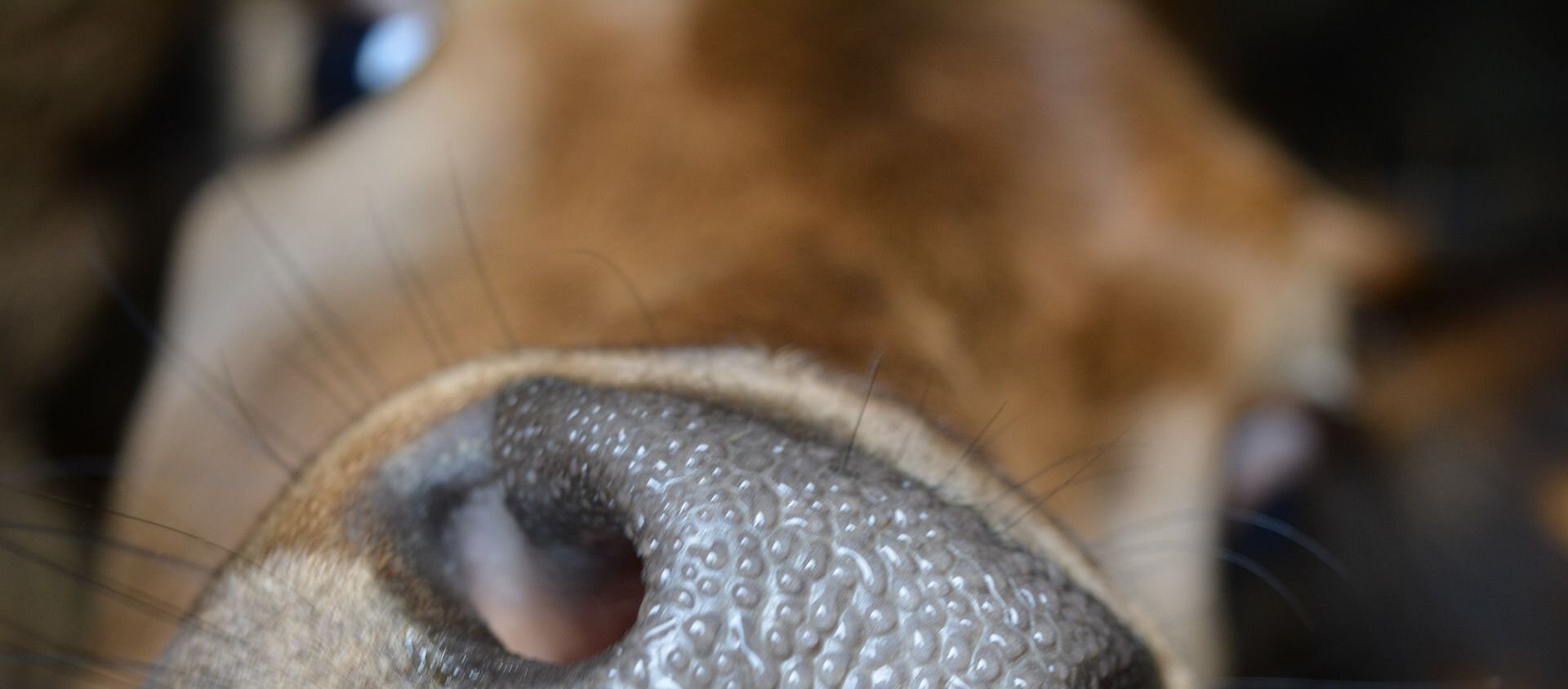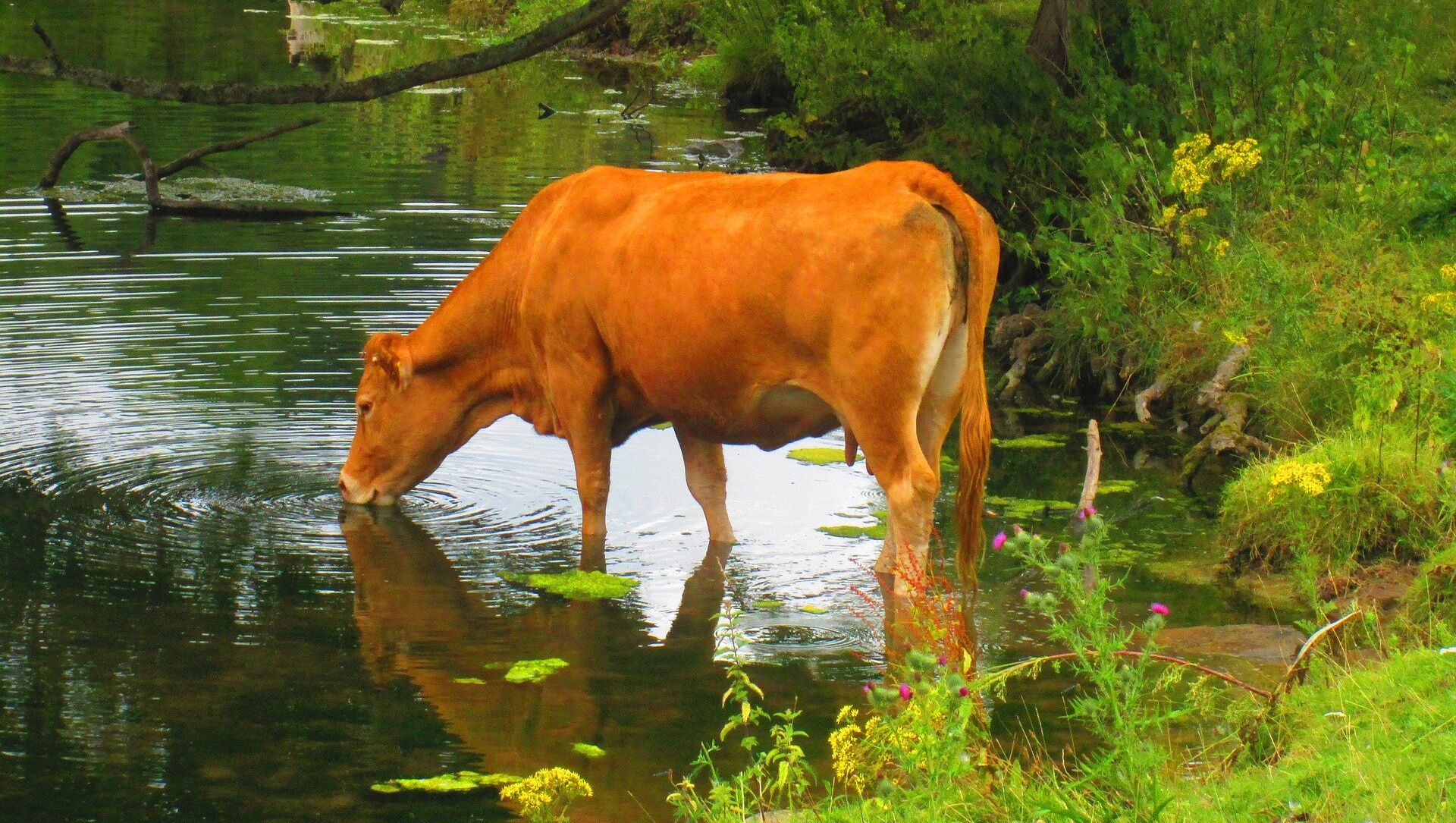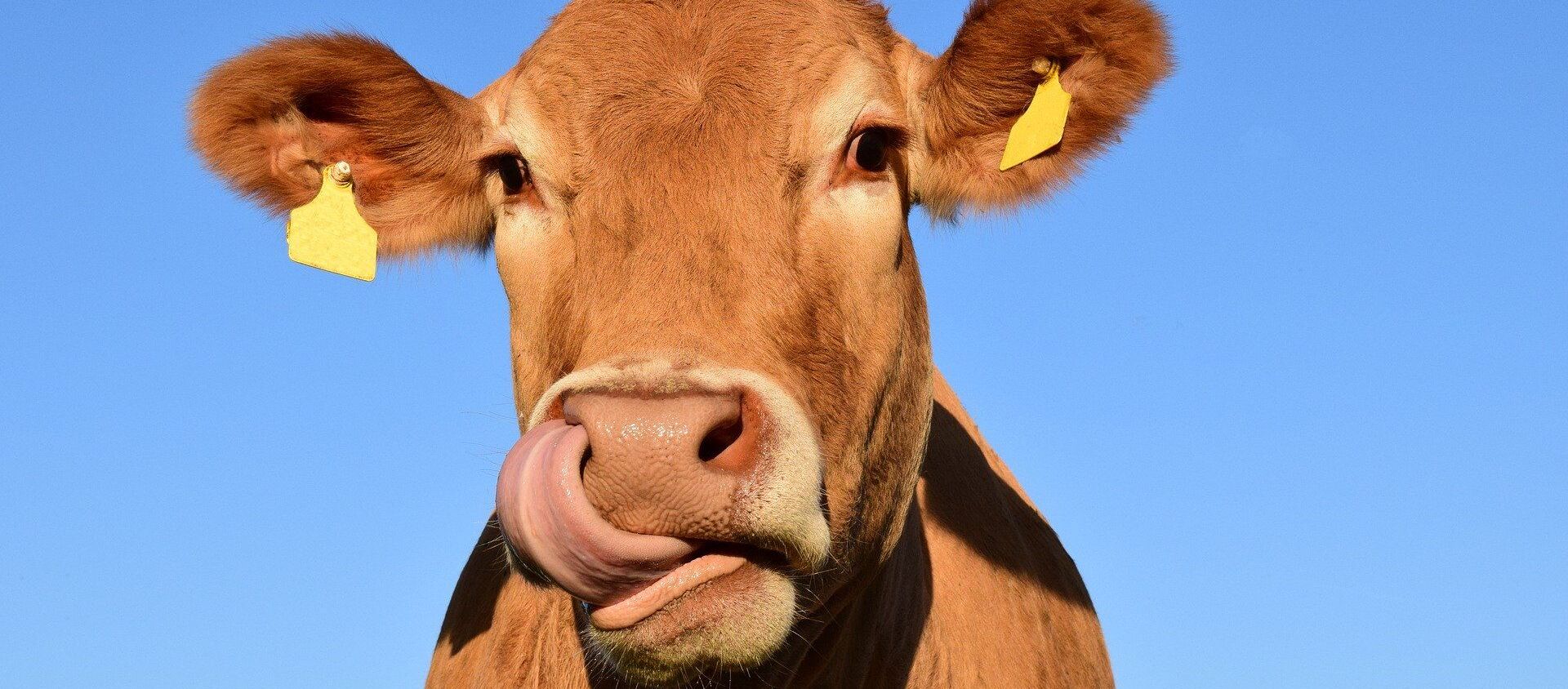https://sputnikglobe.com/20210727/india-plans-to-curb-methane-emissions-by-livestock-as-signs-of-climate-change-intensify-worldwide-1083471796.html
India Plans to Curb Methane Emissions by Livestock as Signs of Climate Change Intensify Worldwide
India Plans to Curb Methane Emissions by Livestock as Signs of Climate Change Intensify Worldwide
Sputnik International
Cows belch and fart huge amounts of methane, which is a big contributor to climate change – India wants to change this. 27.07.2021, Sputnik International
2021-07-27T18:14+0000
2021-07-27T18:14+0000
2022-11-23T13:01+0000
newsfeed
world
agriculture
global warming
methane
climate change
https://cdn1.img.sputnikglobe.com/img/106176/16/1061761633_0:177:1920:1262_1920x0_80_0_0_9f0e939917a5a0dea5975996cbb1a1d7.jpg
The Indian Government on Tuesday announced that it has urged all states and union territories to promote the use of anti-methanogenic feed supplements to help reduce methane emissions and increase milk production. According to environmental experts, cattle are the biggest agricultural source of greenhouse gases across the globe.Recently, the ICAR developed an anti-methanogenic feed supplement coined "Harit Dhara." The supplement not only helps in cutting down methane emissions by up to 20 percent but also results in higher milk production and weight gain.Large grazing herbivorous such as cows produce a lot of methane. According to India's Livestock Census 2019, the cattle population in the country was 193.46 million, along with 109.85 million buffaloes, 148.88 million goats, and 74.26 million sheep. Since Indian cattle are largely fed on agricultural residues, they tend to produce 50-100 percent more methane than countries that give more easily digestible fodder to their livestock."Both Haritdhara and one complete feed block Tamarin Plus developed by ICAR-National Institute of Animal Nutrition and Physiology Bengaluru reduce methane emission from ruminants and increase milk production," the ministry said on Tuesday during the parliamentary session.
https://sputnikglobe.com/20201118/indias-madhya-pradesh-state-to-have-cow-cabinet-for-protection-of-cattle-1081198916.html
https://sputnikglobe.com/20200313/india-to-import-sex-sorting-semen-technology-from-us-to-fight-stray-cattle-problem-1078556579.html
Sputnik International
feedback@sputniknews.com
+74956456601
MIA „Rossiya Segodnya“
2021
Sushmita Panda
https://cdn1.img.sputnikglobe.com/img/07e5/05/12/1082926186_0:0:2048:2048_100x100_80_0_0_4474d0d7e27a36878eb8727832be74b4.jpg
Sushmita Panda
https://cdn1.img.sputnikglobe.com/img/07e5/05/12/1082926186_0:0:2048:2048_100x100_80_0_0_4474d0d7e27a36878eb8727832be74b4.jpg
News
en_EN
Sputnik International
feedback@sputniknews.com
+74956456601
MIA „Rossiya Segodnya“
Sputnik International
feedback@sputniknews.com
+74956456601
MIA „Rossiya Segodnya“
Sushmita Panda
https://cdn1.img.sputnikglobe.com/img/07e5/05/12/1082926186_0:0:2048:2048_100x100_80_0_0_4474d0d7e27a36878eb8727832be74b4.jpg
newsfeed, agriculture, global warming, methane, climate change
newsfeed, agriculture, global warming, methane, climate change
India Plans to Curb Methane Emissions by Livestock as Signs of Climate Change Intensify Worldwide
18:14 GMT 27.07.2021 (Updated: 13:01 GMT 23.11.2022) Cows belch and fart huge amounts of methane, which is a big contributor to climate change – India wants to change this.
The Indian Government on Tuesday announced that it has urged all states and union territories to promote the use of anti-methanogenic feed supplements to help reduce methane emissions and increase milk production. According to environmental experts, cattle are the biggest agricultural source of greenhouse gases across the globe.

18 November 2020, 10:06 GMT
While answering a question about whether livestock in India is a major contributor to global methane levels, Parshottam Rupala, India's minster of fisheries, animal husbandry, and dairy, said: "According to information received from Indian Council of Agricultural Research (ICAR), the global methane emission from enteric fermentation is about 90 million tonnes (Tg). The methane emission from Indian livestock is only about 9-10 million ton. The global manure methane emission is about 10 million tonnes whereas Indian contribution is less than 1.0 million tonnes."
Recently, the ICAR developed an anti-methanogenic feed supplement coined "Harit Dhara." The supplement not only helps in cutting down methane emissions by up to 20 percent but also results in higher milk production and weight gain.
Large grazing herbivorous such as cows produce a lot of
methane. According to India's Livestock Census 2019, the cattle population in the country was 193.46 million, along with 109.85 million buffaloes, 148.88 million goats, and 74.26 million sheep. Since Indian cattle are largely fed on agricultural residues, they tend to produce 50-100 percent more methane than countries that give more easily digestible fodder to their livestock.
"Both Haritdhara and one complete feed block Tamarin Plus developed by ICAR-National Institute of Animal Nutrition and Physiology Bengaluru reduce methane emission from ruminants and increase milk production," the ministry said on Tuesday during the parliamentary session.





